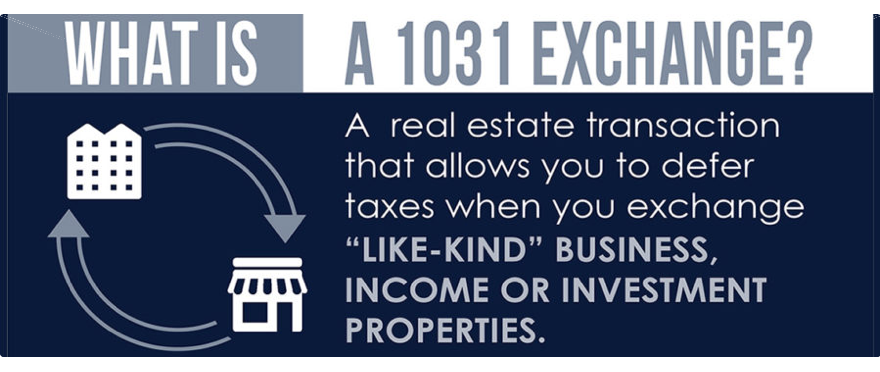Last month the government revealed several tax proposals that could affect real estate investors. The most talked about involves curtailing 1031 exchanges, a long-standing and regularly used strategy for deferring capital gains taxes of income property.
A 1031 exchange allows real estate investors to defer tax liability on the sale of an investment property by using the sale’s proceeds to acquire a new property of like-kind. Although most swaps are taxable as sales, if yours meets the requirements of 1031, you’ll either have no tax or limited tax due at the time of the exchange. In effect, you can change the form of your investment without (as the IRS sees it) cashing out or recognizing a capital gain. That allows your investment to continue to grow tax-deferred. There’s no limit on how many times or how frequently you can do a 1031. You can roll over the gain from one piece of investment real estate to another, to another, and another. Although you may have a profit on each swap, you avoid tax until you sell for cash many years later.
There are three major proposals that could affect landlords and real estate investors.
- Tax rate hike on capital gains for households making over $1 million raising the rate to 39.6% for millionaires, up from 20% where it currently stands for the country’s top earners.
- Remove the ability for the value of property to be “stepped up” when inherited. The stepping up allows heirs to calculate capital gains on the sale of a property using the market value at the time they inherited it, rather than when it was originally purchased.
- Eliminate deferred taxes on gains that are greater than $500,000. This would be modified to increase the tax liability by limiting the maximum amount of capital gains that can be deferred which currently has no ceiling.
Although we don’t yet know what changes will be adopted or how the proposed $500,000 exemption will be calculated, real estate investors may be able to act now to minimize the impact of reduced availability of Section 1031 exchanges:
- Real estate owners planning a sale and exchange in the next 12 months should speed up that timetable and sell now. Congress can pass retroactive tax laws, but usually hasn’t that impose retroactive taxes on transactions structured specifically to comply with prior law because of the chaos that would result if taxpayers attempted to unwind transactions. Therefore, exchanges completed before Congress proposes specifics aren’t likely to be affected by a new law.
- Real estate investors should invest smaller amounts in individual properties.By investing in more properties (but with a smaller amount of equity in each property), investors will be able to take advantage of the $500,000 exclusion more frequently (i.e., when each property is sold).
- Consider paying taxes on gains now.Assuming Congress doesn’t retroactively change long-term capital gains treatment, investors may want to forgo Section 1031 exchanges when they sell real estate and pay long-term capital gains taxes on sale proceeds now. That will enable them to take advantage of current long-term capital gains treatment before it is changed. Although they will have less cash to reinvest, they will have a higher basis in their next investment. With a higher basis, a limitation on Section 1031 exchanges and future increases in long-term capital gains taxes likely will affect them less.
- Taxpayers who haven’t done estate planning should do so now.Everyone should have a will, and everyone with a significant net worth should consider estate planning. Investors may structure ownership of their real estate through irrevocable trusts or implement a gifting plan and break their investments into smaller segments.
